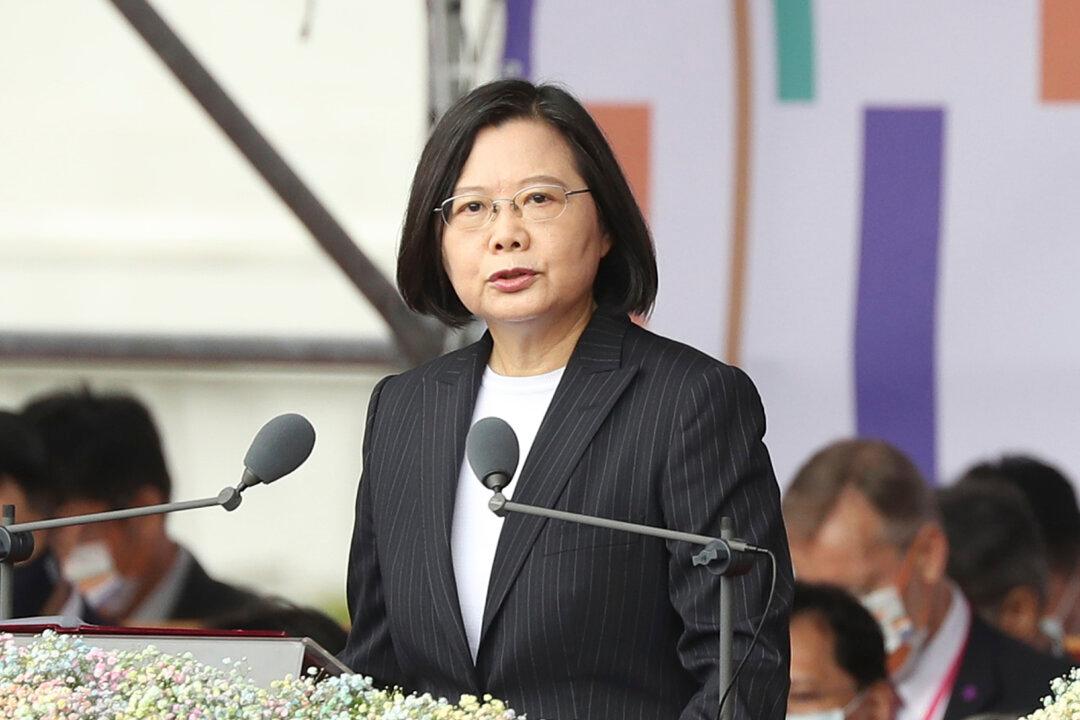Taiwan’s president has ruled out armed confrontation with China, saying that her government is willing to engage with the Chinese Communist Party (CCP) to reach a “mutually agreeable arrangement.”
In her national address on Monday, President Tsai Ing-wen said it was “regrettable” that China had escalated its military intimidation, diplomatic pressure, and trade obstructions to remove Taiwan’s sovereignty.





